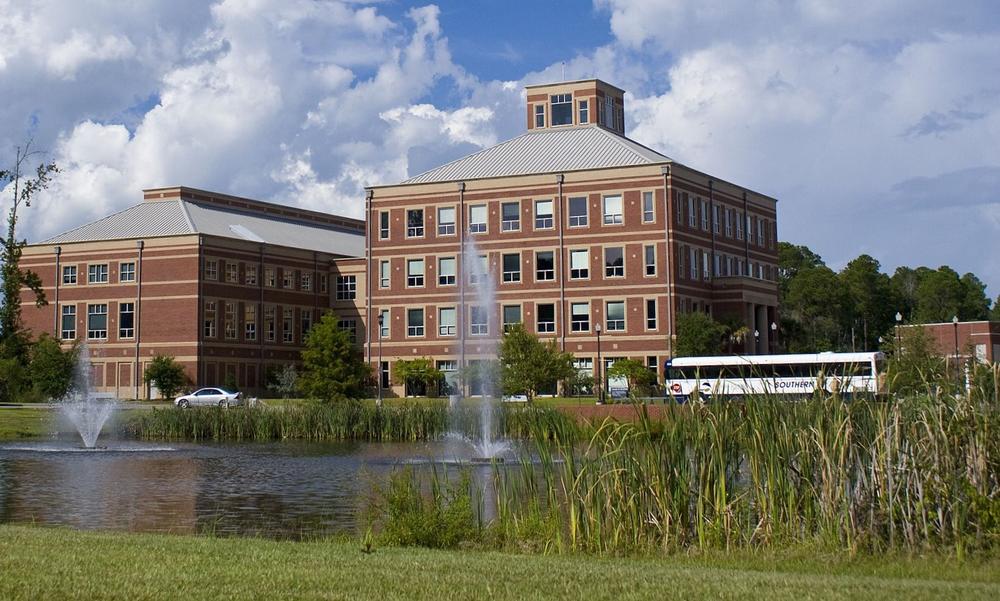
Section Branding
Header Content
Georgia's only Ph.D. program in environmental science to launch at Georgia Southern University
Primary Content
LISTEN: The interdisciplinary degree comes as climate change weighs heavily on the surrounding coastal region. GPB's Benjamin Payne reports.

A new sustainability school at Georgia Southern University will soon offer the state's only Ph.D. in environmental science, beginning with its inaugural cohort of doctoral students in the fall semester.
The School of Earth, Environment and Sustainability (SEES) — organized in July as a merger between the university's existing offerings in geosciences and coastal sciences — will house the degree program at the university's main campus in Statesboro as well as its Armstrong Campus in Savannah.
“I'm really excited to have Ph.D. students come into the program,” said marine ecology professor Daniel Gleason, who chairs SEES. “I think it's really going to advance the research and the capabilities of the institution.”
Some of that research will explore environmental best practices for economic development projects, in light of the explosive growth that Savannah and the coastal region are undergoing.
Pointing to Bryan County's future Hyundai electric vehicle plant as a prime example, Gleason said that he wants SEES to become the “go-to institution” for companies seeking to grow in a responsible manner.
“All these businesses and industries coming in are going to be great for the economics of the region, but we just want to make sure that they're also done in a way that it doesn't destroy the quality of life around here — the reason that many of us live down in this region,” Gleason said.
In addition to the new Ph.D. program, SEES will also begin offering a Master of Science in environmental science. The degree can be pursued through either the traditional route — by applying after earning a bachelor's degree — or through an “accelerated” path, in which undergraduates begin their masters coursework while still in their senior year at Georgia Southern.
Emory University and the University of Georgia offer doctorates related to the natural environment, although their programs are directed more toward impacts on human health and disease.
Environmental scholarship has taken on a new sense of urgency in recent years, as climate change has gone from being popularly thought of as a future threat to, now, a clear and present danger with wide-ranging effects.
“The traditional boundaries between the sciences when it comes to environmental issues — they're really breaking down,” Gleason said. “I mean, if you take something like releasing CO2 in the atmosphere, that has effects on multiple levels: it not only warms the planet, but it also does things like change the pH of the oceans, which has effects on organisms, and causes rising sea levels. So, there are just so many different [academic] fields that are involved.”
For this reason, SEES will employ an interdisciplinary model of education, with required coursework incorporating science and mathematics with policy and management.
“The careers these students will be prepared for don’t require the traditional disciplines we used to see,” Georgia Southern University provost Carl Reiber said in a statement. “We’re now seeing a need for combining pathways among several disciplines to give students a better chance of success after their academic careers are complete.”
Even for as long as it takes to complete Georgia Southern's new Ph.D. — four to five years, en route to 78 credit hours and a dissertation — the time commitment pales in comparison to what Gleason and his colleagues invested in developing the new offering.
“We've been working on getting a Ph.D. program here for about 20 years,” Gleason said, adding with a laugh, “It hasn't been a short period of time.”

